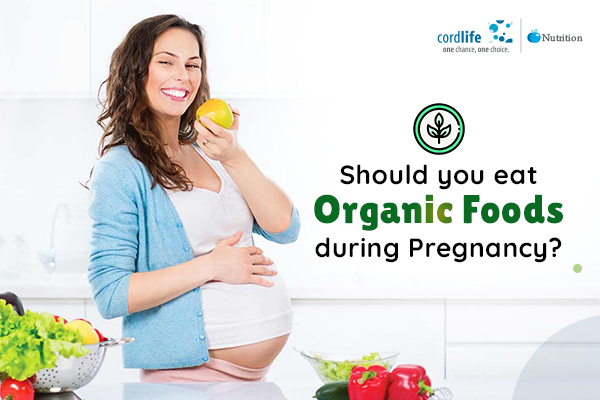Table of Contents
Look around, and you’ll see advertisements for organic products everywhere. It’s the new rage, and everyone is talking about it. From organic fruits to organic chicken, you’ll find it all and oh boy, is it expensive. However, the important question is why are so many pregnant women ditching conventional foods and opting for organic ones? Well, for that, we first need to understand:
What Does Organic Food Mean?
Simply put, organic food manufacturers have to follow stringent guidelines set in place by the USDA (U.S. Department of Agriculture) and FDA (Food and Drug Administration). This means that their foods have to meet the following criteria to call themselves organic:
- Should use only approved organic pesticides
- Should be free of toxic fertilizers
- Shouldn’t use synthetic weed-killers
- Shouldn’t be genetically modified
- Shouldn’t be injected with hormones or antibiotics
That means good, right? Yes, they do. However, all the products available in the market are not 100% organic. Here’s a quick guide to understanding the organic food labels:
- 100% Organic Foods – Contain only certified organic ingredients.
- Organic Foods – Contain at least 95% organic ingredients.
- Made with Organic Ingredients – Contains 70% organic ingredients
- Organic written only on the ingredient panel – Contains less than 50% organic ingredients.
Now that you know how to identify organic foods, it’s time to understand the benefits and drawbacks of consuming them during pregnancy.
Benefits of Organic Foods
- Since organic foods have much less quantity of harmful pesticides, your unborn baby won’t be affected.
- Organic food will boost your baby’s immunity. In fact, your baby will be able to fight against certain antibiotics that are injected into poultry and other farm animals.
- You, as a mommy, will have no reaction against food colours and additives, thus adversely affecting the foetus.
- After being born, your baby might be exposed to hazardous chemicals in fertilizers and pesticides. Intake of organic food, while still being in the womb, might limit risk of your child developing long-term illnesses, after-birth
- Consuming seasonal and fresh fruits and vegetables is beneficial for boosting the baby’s health.
Drawbacks of Organic Foods
- Since organic fruits and veggies are free of pesticides and other preservatives, they have a shorter shelf-life. So, it may not preferred choice for you, as a would-be mommy.
- It is a misconception that, organic foods are necessarily tastier than conventional produce. In fact, you’d hardly be able differentiate in the taste between the two.
- Since growing organic fruits and veggies needs a little more care than the conventional produce, organic foods are a little more expensive. And with baby on the on the way, this could impact the monthly budget of your household.
- You should not confuse organic foods with diet foods, as they can also be as unhealthy as conventional food.
- As organic foods are pesticide-free, they need to be washed and cooked well before you consume them. As they may contain disease-causing insects, worms, germs, etc.
With these differences laid out in front of you, it’s easy to make a choice. If you opt for organic foods, make sure:
- you buy them fresh,
- use them up quickly,
- freeze the leftover, and
- read the pack label thoroughly.
To Conclude
We know that, during pregnancy, you, like all the other pregnant mommies, would want to have the healthiest foods for your would-be baby. Whichever route you pick up, what is important is that you have a balanced diet and a colourful plate which includes vegetables, pulses, fruits, etc – it may or may not be organic.
